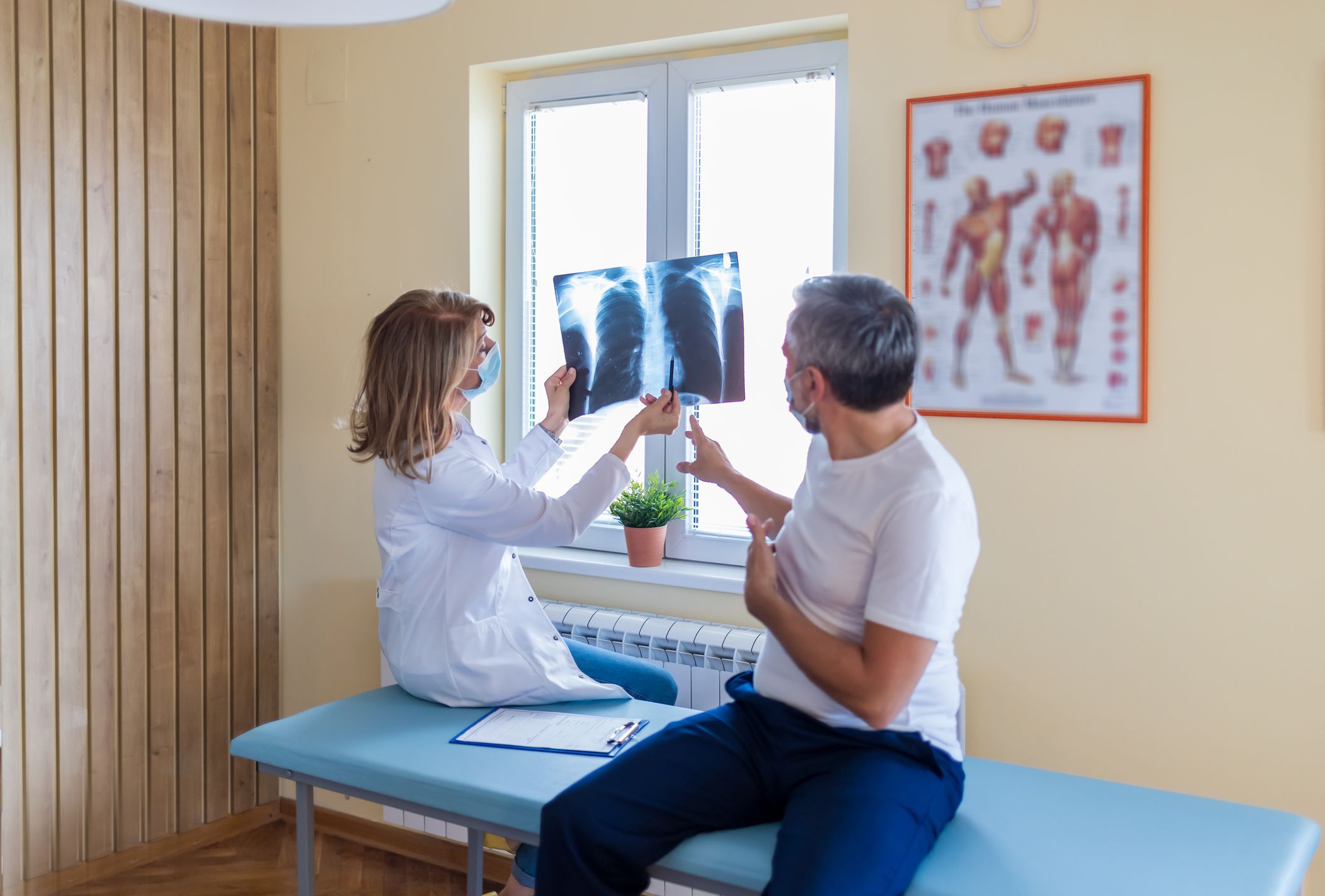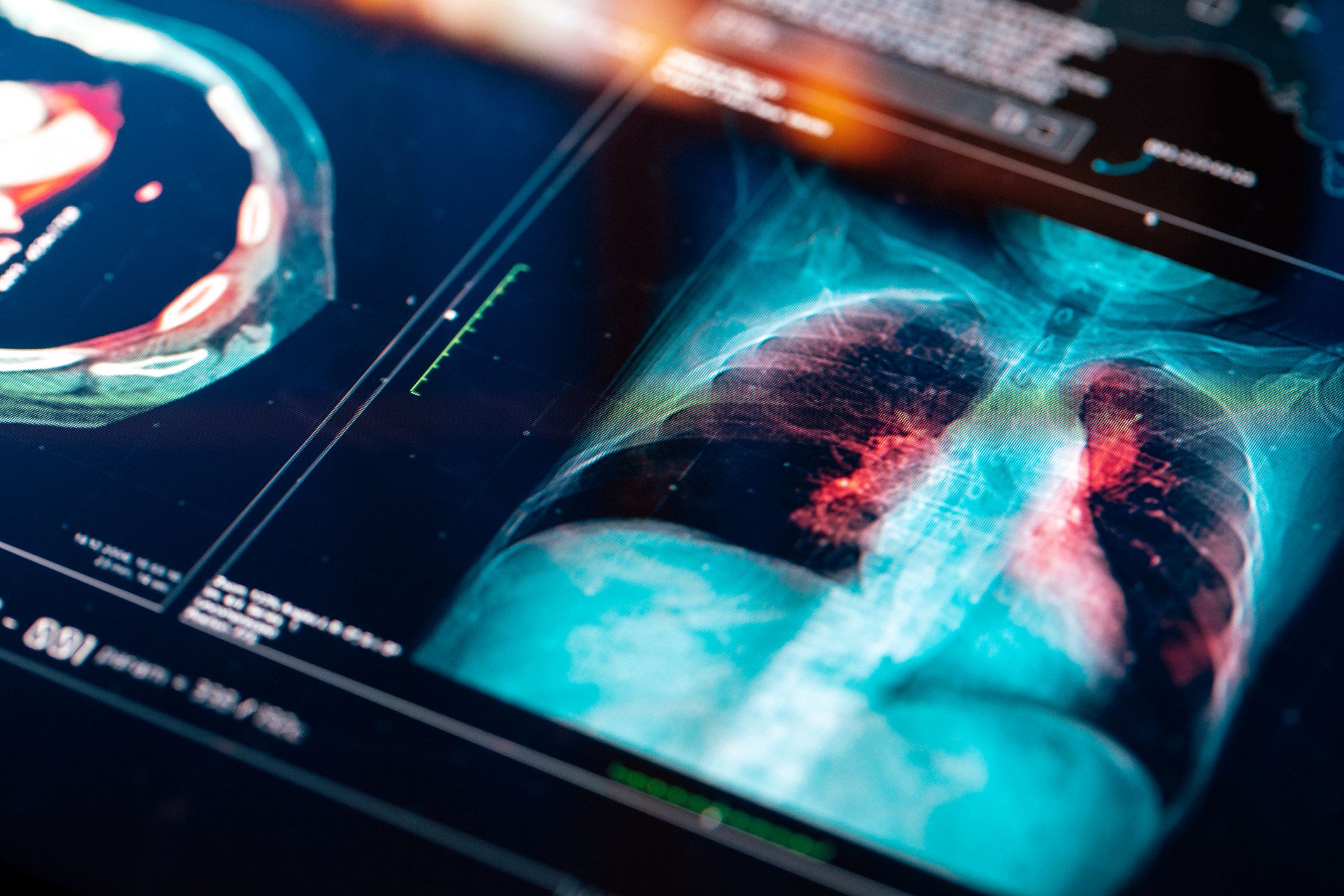Updated on August 6, 2024
Sometimes referred to as “locally advanced,” stage III NSCLC generally refers to cases where the cancer has spread to other structures throughout the chest, but has not spread to the other lung or metastasized to other sites in the body.
Stage III NSCLC tumors are sometimes described as “heterogeneous”—which means diverse, varied, or disparate. What this description means is there can be a great deal of variation among cancer cells in stage III NSCLC, and not all cases of stage III NSCLC are vulnerable to the same treatments.
As a result, treatment for stage III NSCLC is highly individualized. That means that a treatment plan is at least somewhat different for every person diagnosed with this type of cancer. Here, we look at the reasons for this approach and the various treatments that may be used in treating stage III NSCLC.
Staging
When deciding on a treatment for stage III NSCLC, a healthcare team will gather as much information as possible about the cancer and about the patient. Some of this information may have been gathered in the diagnosis and staging process. It may have included the size and locations of the tumors, whether the cancer has spread to lymph nodes, and if the cancer is affecting other tissues and organs around the lungs. This information will be considered when deciding on a treatment plan.
Biomarker testing
Cancer biomarkers give us more information about a person’s individual cancer. Some cancer treatments—targeted therapies and immunotherapies—are able to target biomarkers. Biomarker testing can help determine if these therapies may be effective at treating a specific case of NSCLC.
The patient being treated
Information about the person who is undergoing treatment for NSCLC is also very important when deciding on an approach to treatment. Some of the factors that a healthcare team will consider include:
- Medical history. This includes any previous cancer treatments and other health conditions, such as chronic obstructive pulmonary disease (COPD) or cardiovascular disease.
- Age and overall health. Cancer treatments cause side effects and take a toll on the body, and the impact cancer treatment will have on a person’s life and health will be considered.
- Patient preferences and needs. While patients should follow the guidance of their healthcare team, they should have a clear understanding of their treatment options, what side effects to expect, and the pros and cons of different treatments. Anyone undergoing treatment should discuss their concerns and questions with their healthcare team.
Treatment options
While a person’s treatment plan for NSCLC will depend on the factors described above, here are the commonly used treatments for stage III NSCLC.
Chemotherapy and radiation therapy. Chemotherapy used in combination with radiation therapy (called “chemoradiotherapy” or “chemoradiation”) is a staple of treatment for stage III NSCLC. Chemotherapy or “chemo” are drugs that contain powerful chemicals that destroy cancer cells or stop cancer cells from spreading. Radiation therapy uses X-rays to shrink or destroy specific tumors. These treatments may be used together or one after another.
Targeted therapies. Biomarker testing can identify certain proteins that aid cancer growth in some cases. Targeted therapies work by blocking or inhibiting these proteins. This disrupts the growth and spread of cancer cells.
Immunotherapy. Biomarker testing can also determine if cancer is PD-1 or PD-L1 positive. They are different proteins found on the surface of cancer cells in some cases. Immunotherapy drugs disable these proteins or reduce their amount in the body, which allows the immune system to attack the cancer cells. Immunotherapies are somewhat unique in that they do not attack cancer cells directly, but help the immune system attack cancer.
Surgery. Surgery may be used along with other therapies to remove specific tumors or lymph nodes, or to remove part or all of the diseased lung.
Remember, not every treatment is appropriate for everyone. The best thing a person with stage III NSCLC can do is work with a team of healthcare providers who can guide them through the best treatment options.






